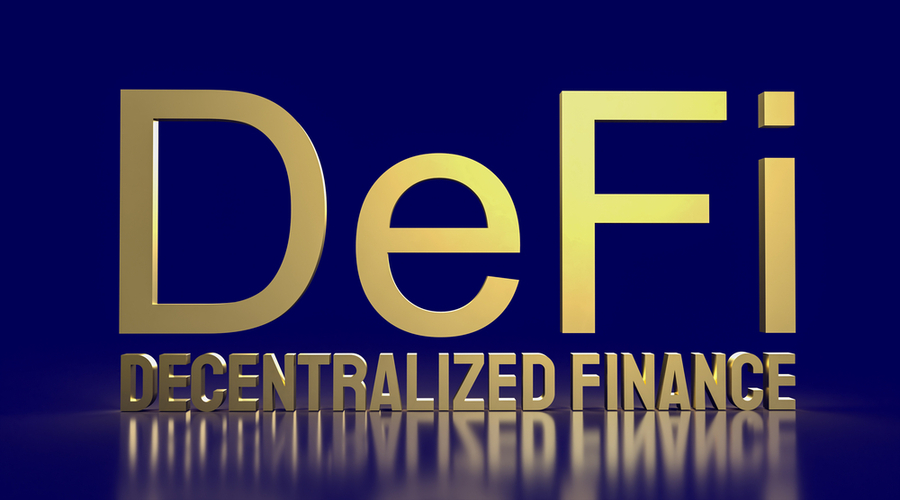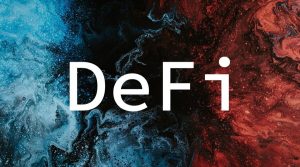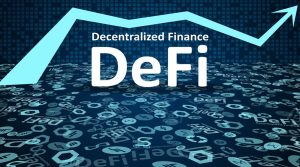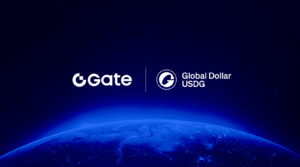The Impact of DeFi Insurance on Investor Confidence

The Impact of DeFi Insurance on Investor Confidence
Introduction
Decentralized Finance (DeFi) has gained immense popularity, offering a wide range of financial services powered by blockchain technology. However, the inherent risks associated with DeFi platforms have raised concerns among investors. DeFi insurance has emerged as a solution to address these risks and instill confidence in investors. In this article, we will explore the impact of DeFi insurance on investor confidence.
Enhancing Risk Mitigation
DeFi insurance provides investors with a safety net against potential financial losses resulting from various risks, such as smart contract vulnerabilities, protocol failures, or hacker attacks. This risk mitigation mechanism instills confidence in investors, knowing that their investments are protected by insurance coverage.
- Insurance coverage protects investors’ capital and potential returns, reducing the fear of losing funds due to unforeseen events.
- Investors can engage in DeFi activities with peace of mind, knowing that they have a layer of protection against financial risks.
Fostering Trust and Reliability
DeFi insurance plays a significant role in fostering trust and reliability within the ecosystem. By offering insurance coverage, it demonstrates a commitment to addressing the vulnerabilities and risks inherent in DeFi platforms.
- Investors perceive DeFi projects that offer insurance as being more reliable and trustworthy, as they prioritize investor protection.
- Insurance providers conduct due diligence on DeFi projects before offering coverage, ensuring that the projects meet certain standards and security requirements.
Encouraging Participation and Investment
DeFi insurance encourages wider participation and increased investment in the ecosystem. Investors are more likely to engage in DeFi activities when they have a safety net provided by insurance coverage.
- With insurance protection, investors are more willing to allocate larger amounts of capital into DeFi projects, promoting liquidity and overall growth.
- Increased investment leads to a more vibrant and resilient DeFi ecosystem, attracting more participants and driving innovation.
Stimulating Innovation and Development
DeFi insurance stimulates innovation and development within the ecosystem. Insurance providers and projects continuously innovate to address emerging risks and develop new insurance products tailored to DeFi-specific needs.
- The availability of insurance coverage incentivizes DeFi projects to prioritize security, undergo audits, and implement best practices to mitigate risks.
- Insurance providers develop new coverage options, such as coverage for new DeFi protocols or emerging asset classes, fostering the expansion and diversification of the DeFi ecosystem.
Establishing a Safety Net for Investors
DeFi insurance establishes a safety net for investors, promoting long-term confidence in the ecosystem. It provides a means of recourse in the event of financial losses, creating a more resilient environment for investors.
- Investors feel more secure knowing that they have a mechanism to recover potential losses in case of incidents.
- The existence of a safety net reduces the fear of catastrophic events, encouraging investors to participate and contribute to the growth of the DeFi space.
Reducing Counterparty Risk
DeFi insurance helps reduce counterparty risk for investors. Counterparty risk refers to the potential loss or default by other participants in the DeFi ecosystem, such as borrowers, lenders, or liquidity providers. Insurance coverage protects investors from potential losses caused by defaults or insolvencies of counterparties, enhancing confidence in the DeFi space.
- Investors can participate in lending or liquidity provision activities with reduced concerns about counterparty defaults.
- Insurance coverage acts as a safeguard against financial losses resulting from the failure of other participants in the ecosystem.
Regulatory Compliance and Investor Protection

DeFi insurance providers often adhere to regulatory compliance standards to ensure investor protection. Compliance with applicable regulations and industry best practices demonstrates a commitment to maintaining a fair and transparent ecosystem.
- Compliance with regulations fosters investor trust by ensuring that insurance providers operate within legal frameworks and follow established consumer protection guidelines.
- Investor protection measures, such as robust KYC (Know Your Customer) procedures and privacy safeguards, contribute to building confidence in the DeFi insurance industry.
Improving Market Stability and Resilience
DeFi insurance contributes to market stability and resilience by mitigating the impact of major incidents and reducing systemic risks. In the event of significant losses, insurance coverage helps absorb the financial impact and prevent panic-selling or market instability.
- Investors are more likely to stay invested during market downturns, knowing that their potential losses are covered by insurance.
- The availability of insurance coverage creates a buffer against systemic risks and promotes a more stable and resilient DeFi market.
Education and Risk Awareness
DeFi insurance promotes education and risk awareness among investors. Insurance providers often offer educational resources, tutorials, and risk assessment tools to help investors understand the risks involved in the DeFi space.
- Educated investors make informed decisions, manage their risks effectively, and have a better understanding of the benefits and limitations of insurance coverage.
- Increased risk awareness fosters responsible investment practices and reduces the likelihood of investors falling victim to scams or fraudulent activities.
Collaboration with Auditors and Security Experts
DeFi insurance providers often collaborate with auditors and security experts to enhance investor confidence. Working closely with these professionals helps ensure the integrity and reliability of insurance coverage and the underlying DeFi projects.
- Audits and security assessments provide independent verification of the security measures and risk management practices implemented by DeFi projects.
Transparent Claims Settlement
DeFi insurance providers prioritize transparent claims settlement processes, ensuring that investors have a clear understanding of how claims are evaluated and resolved. Transparent claims settlement instills confidence by providing clarity and fairness in the handling of claims.
- Clear communication regarding the documentation requirements, timelines, and procedures for filing and resolving claims builds trust between insurance providers and investors.
- Transparent claims settlement processes enhance accountability and help investors feel confident that their claims will be handled professionally and efficiently.
Market Expansion and Accessibility
The availability of DeFi insurance expands market access and makes DeFi investments more accessible to a broader range of investors. Insurance coverage lowers barriers to entry and encourages participation from both institutional and retail investors.
- Institutions and professional investors often have risk mitigation requirements, and DeFi insurance provides the necessary protection for them to allocate capital to the DeFi space.
- Retail investors, who may have limited risk tolerance, feel more comfortable entering the DeFi market when they have the option to protect their investments with insurance coverage.
Long-Term Sustainability of the DeFi Ecosystem
DeFi insurance contributes to the long-term sustainability of the ecosystem by instilling confidence and attracting long-term investors. Stable and committed investors provide a foundation for the growth and development of the DeFi space.
- Investors who feel secure and protected by insurance coverage are more likely to engage in long-term investments, contributing to the stability and growth of DeFi projects.
- The presence of insurance coverage encourages long-term partnerships and collaborations between DeFi projects and investors, fostering an ecosystem built on trust and mutual benefits.
Reputation and Brand Building
DeFi insurance providers build their reputation and brand through reliable and consistent insurance offerings. A strong reputation enhances investor confidence and attracts new participants to the DeFi insurance ecosystem.
- Insurance providers that have a track record of successfully settling claims and offering comprehensive coverage build trust and credibility in the market.
- Positive feedback and testimonials from insured investors further strengthen the reputation of insurance providers, leading to increased investor confidence.
Continuous Improvement and Innovation
DeFi insurance providers continuously innovate and improve their offerings to meet the evolving needs of investors and the DeFi ecosystem. This commitment to improvement fosters investor confidence in the industry’s ability to adapt to emerging risks and challenges.
- Insurance providers regularly assess feedback from investors and incorporate suggestions for improvement into their products and services.
- Continuous innovation helps insurance providers stay ahead of emerging risks, provide comprehensive coverage, and maintain investor trust in the ever-changing DeFi landscape.
Collaboration with Regulatory Authorities
DeFi insurance providers often collaborate with regulatory authorities to establish regulatory frameworks and guidelines that promote investor protection and ensure compliance within the industry. This collaboration enhances investor confidence by fostering a regulated and secure environment for DeFi insurance operations.
- Working with regulatory authorities helps establish industry standards, consumer protection measures, and licensing requirements for DeFi insurance providers.
- Regulatory oversight provides investors with assurance that insurance providers are operating in accordance with established rules and regulations, minimizing the risk of fraudulent or unethical practices.
Third-Party Audits and Security Assessments
DeFi insurance providers may undergo third-party audits and security assessments to validate the integrity and reliability of their insurance offerings. These audits provide an additional layer of assurance for investors and demonstrate a commitment to maintaining high standards of security and risk management.
- Independent audits and security assessments help verify that insurance providers have implemented robust security measures and risk mitigation strategies.
- Public disclosure of audit reports and security assessments enhances transparency and allows investors to make more informed decisions when selecting insurance providers.
Reducing Fear of Loss and Market Volatility
DeFi insurance helps reduce the fear of loss and market volatility among investors. By providing a layer of protection against financial risks, insurance coverage allows investors to engage in DeFi activities with greater confidence.
Conclusion
DeFi insurance plays a crucial role in instilling confidence in investors by providing risk mitigation, fostering trust, encouraging participation, stimulating innovation, and establishing a safety net. As the DeFi ecosystem continues to evolve, the availability of comprehensive and reliable insurance coverage will be instrumental in attracting a wider range of investors and ensuring the long-term sustainability and growth of the DeFi space.








